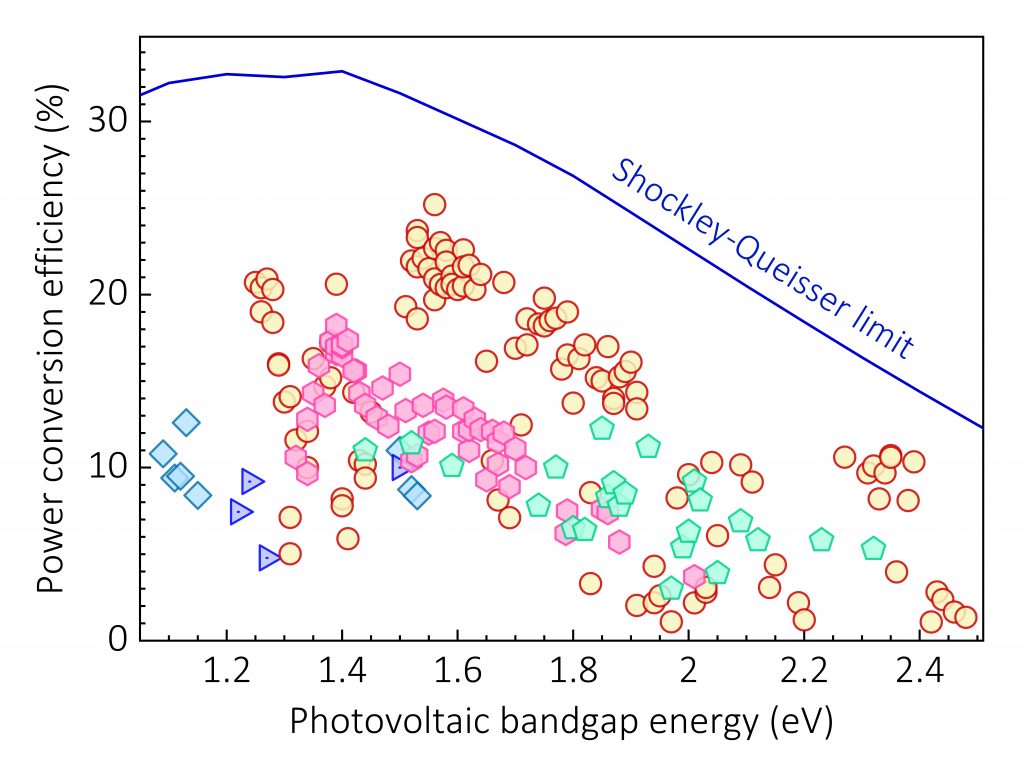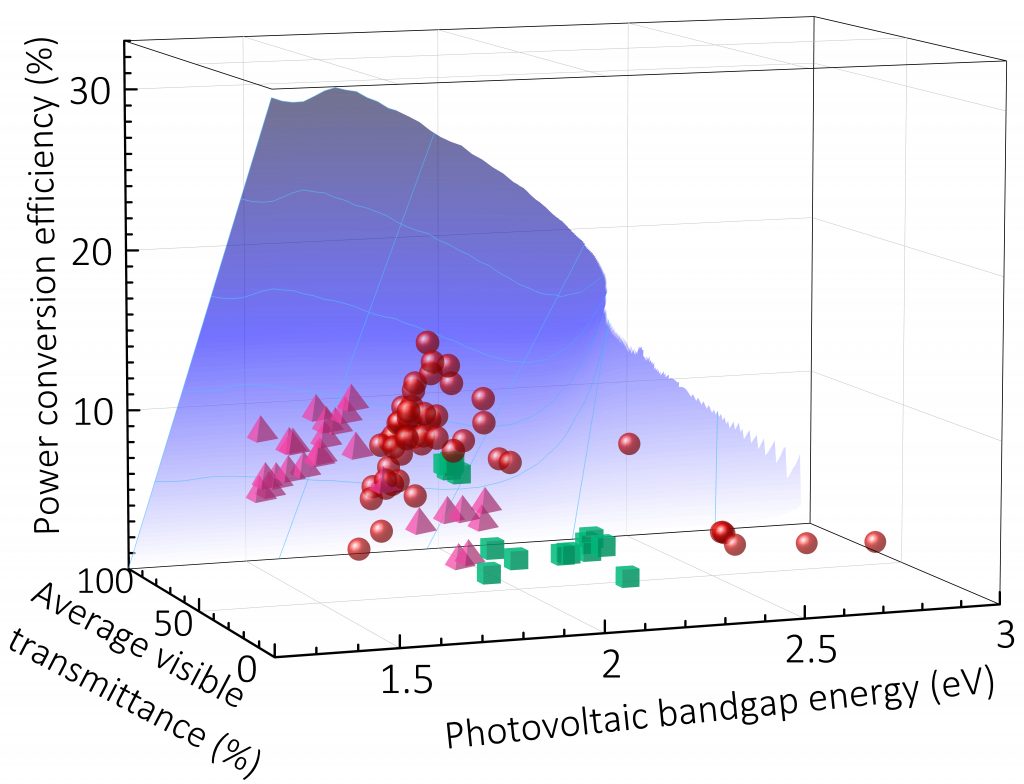3rd Emerging PV workshop at NGSE9 in Nuremberg on December 12, 2024
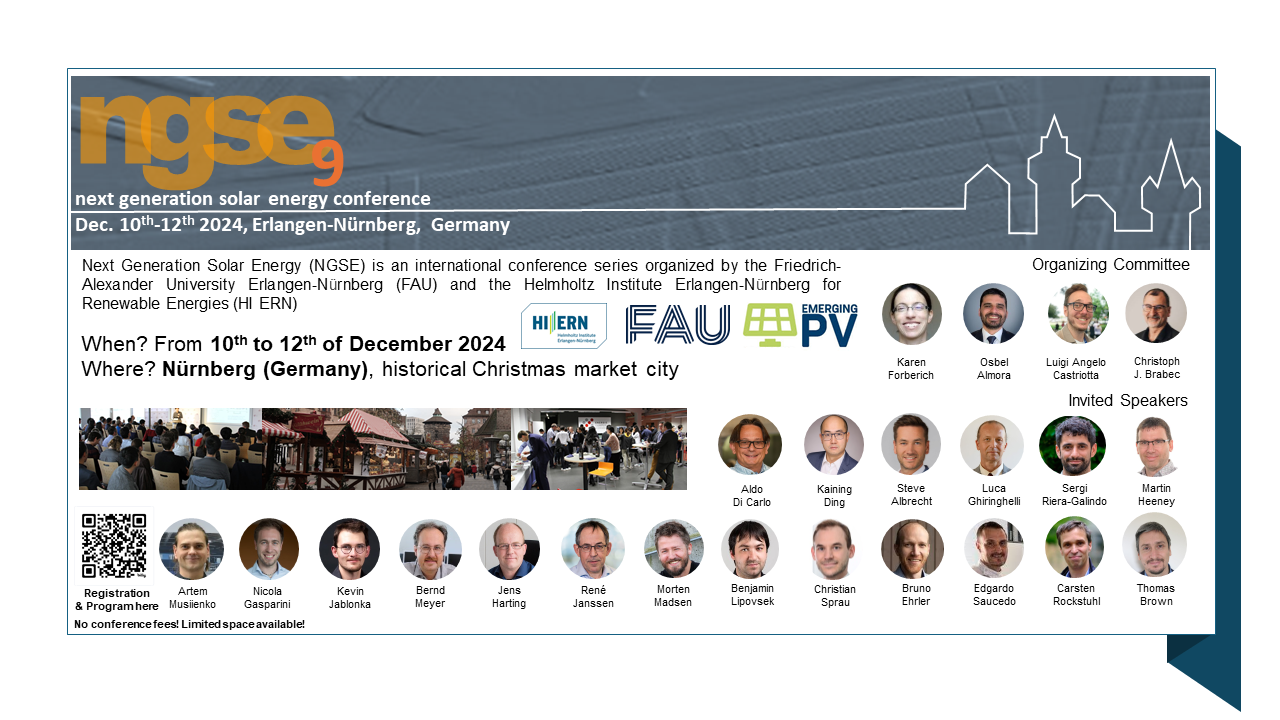
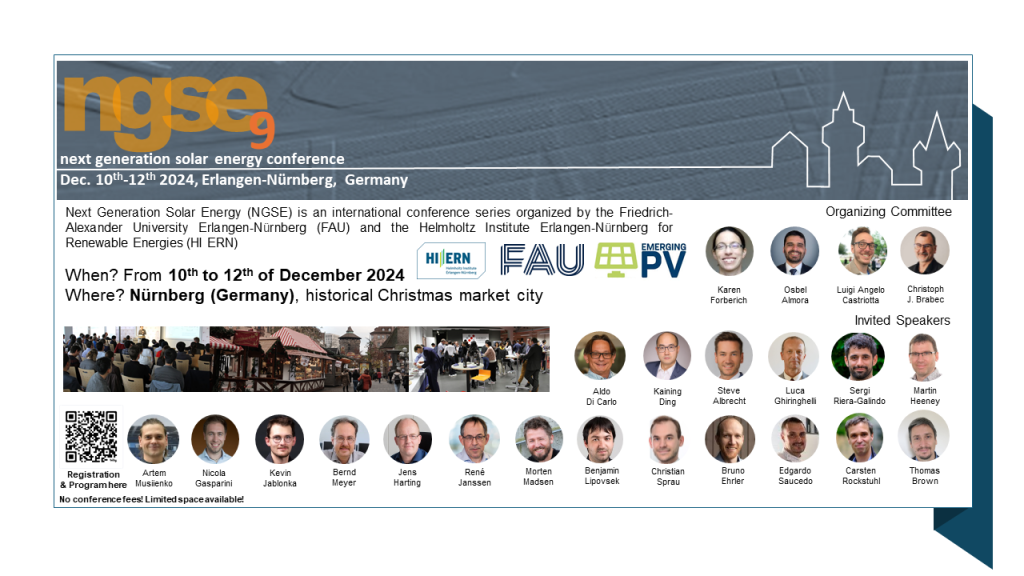
The 9th International Conference on Next Generation Solar Energy (NGSE9-2024) will be held this year at the EnCN building in Fürtherstraße 250, Nuremberg, Germany, from December 10–12, 2024. Organized by Karen Forberich, Osbel Almora, Luigi Angelo Castriota and Christoph Brabec, this event will bring together leading experts and researchers in solar energy.
The final day of the conference, December 12, will host the 3rd Emerging Photovoltaics (PV) workshop (ePVW3). This special session will feature the presentation of version 5 of the “Emerging PV Reports”, an annual survey to be published in Advanced Energy Materials. Attendees will gain insights into the latest advancements in emerging PV research, including keynote presentations from Edgardo Saucedo (Universitat Politècnica de Catalunya), Carsten Rockstuhl (Karlsruhe Institute of Technology), and Thomas Brown (University of Rome Tor Vergata).
The ePVW3 will also include the annual Emerging-PV initiative meeting, where participants will discuss recent progress and future directions. Topics will include enhancements to the Emerging PV website, new report sections in the “Emerging PV Reports”, applications of data science and AI, outreach strategies in social media and conferences, and further collaborative opportunities with industry and academia.
Don’t miss this opportunity to engage with the forefront of solar energy research and development!
Emerging-PV initiative Leads experts in a protocol proposal for Characterizing Mechanical Performance of Flexible Photovoltaics

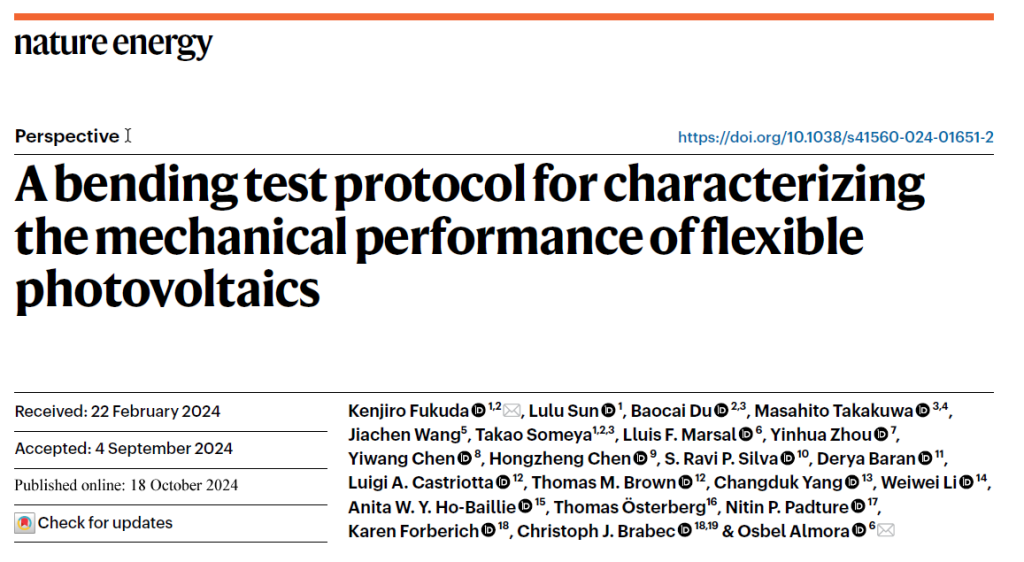
Flexible photovoltaic devices (FlexPVs), unlike the more common rigid photovoltaic devices, have great potential in portable electronics and Internet-of-Things applications, textiles, curved surfaces such as car roofs, and low weight applications such as drones and aerospace transportation. Over the past few years FlexPVs have made remarkable efficiency gains, with recent reports showing power conversion efficiencies over 24%, very close to rigid devices over 26%. However, the absence of a standardized protocol for evaluating their stability and mechanical performance makes it difficult to compare and evaluate the “flexibility” and lightness of FlexPVs, thus limiting their development.
In a recent article in the journal Nature Energy, a committee of 23 PV and mechanical performance experts of 12 nationalities have introduced a unified testing protocol aimed at improving consistency in the evaluation of flexible solar cells and panels. The protocol emphasizes the measurement of efficiency over 1000 bending cycles under 1% strain, emphasizing the importance of uniform application of the bending radius, flexibility testing with and without encapsulation, and detailed testing of bending orientations relative to flow
The team of experts was led by Kenjiro Fukuda, from the RIKEN Center for Emerging Matter Science in Saitama, Japan, and Osbel Almora, from Universitat Rovira i Virgili of Tarragona, Spain. Kenjiro and Osbel are also members of the Emerging-PV.org consortium, along with Takao Someya, Karen Forberich, Christoph Brabec, Luigi Angelo Castriotta, Anita W. Y. Ho-Baillie and Derya Baran.
Emerging-PV.org meets PV-magazine.de

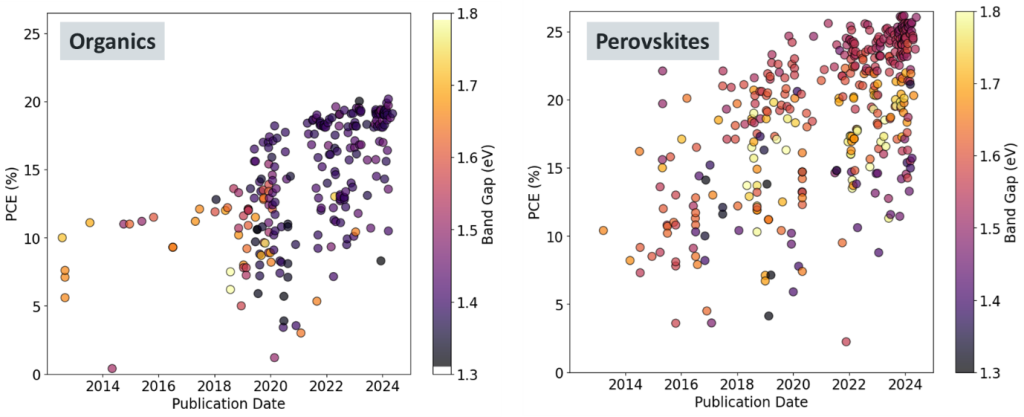
PV-magazine.de recently published an article by Dr. Karen Forberich on the challenge of achieving standardized comparability and accelerating technological development in emerging photovoltaic (PV) technologies. Emerging PVs, which includes organic photovoltaics (OPV) and perovskite photovoltaics (PPV), is distinguished by its use of alternative light-absorbing materials and its potential for innovative applications due to properties like transparency and flexibility. However, the lack of standardized metrics and common data platforms has hindered comparative progress assessments across different research groups.
To tackle this issue, Karen explains how an international consortium of research experts established the Emerging-PV Initiative. This initiative includes a comprehensive database and an associated website where scientists can upload their published data on various performance metrics such as power conversion efficiency and operational lifetime. The data undergo an automatic verification process for completeness and consistency before being presented. This initiative aims to create uniform criteria for data publication, enhancing the visibility of progress and facilitating accelerated technological development.
The article highlights that operational lifetime is currently a significant hurdle for commercializing emerging PV technologies. Variability in testing conditions like temperature, lighting, and ambient atmosphere complicates the assessment of longevity. The Emerging PV Initiative seeks to address these challenges by encouraging uniform testing standards and data contributions from the scientific community.
Forberich also emphasizes the importance of future discussions on photovoltaic technologies’ potential impacts and applications through lecture series and collaborative events involving experts from both academia and industry. These discussions will explore the future trajectory of PV technologies, their integration into various sectors, and their role in a sustainable energy economy.
Overall, Karen’s article underscores the necessity for standardized data sharing and evaluation in advancing emerging PV technologies and presents the Emerging-PV Initiative as a pivotal step towards achieving these goals.
ePVW2: Multijunction, Interface Science, and Cockroaches
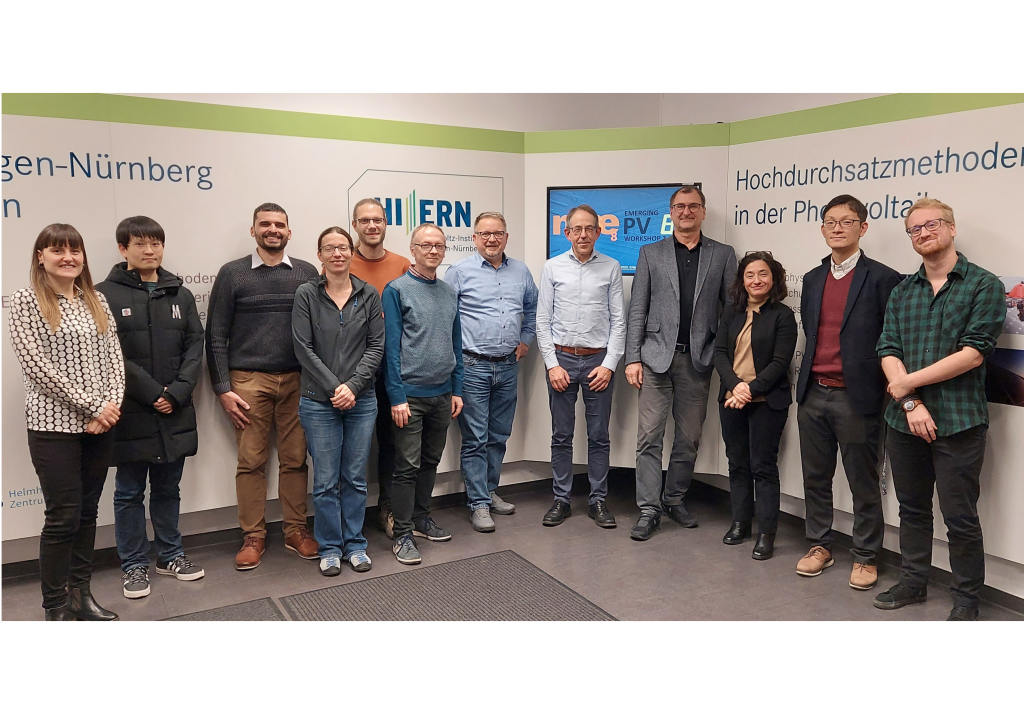
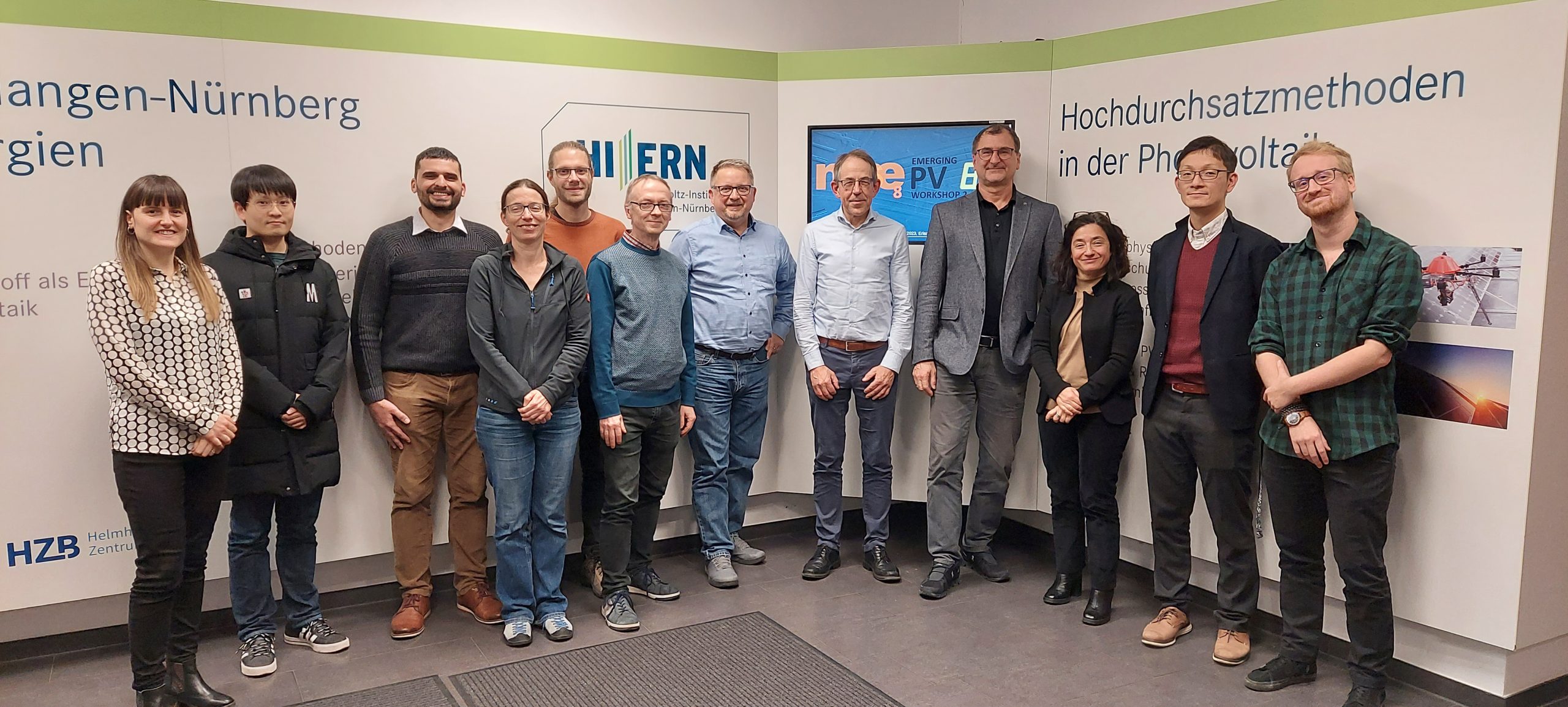
The second emerging Photovoltaics Workshop (ePVW2) at the 8th international conference Next Generation Solar Energy (NGSE8) was held in Erlangen, Germany, this December 2023 with the participation of several world-class experts in the field.
In the introductory talk, Osbel Almora introduced the just published Emerging-PV report 2023. This is the 4th version of the yearly reviews series in Advanced Energy Materials, which summarizes the latest progress in device performance an versatile applications of emerging photovoltaics.
Subsequent presentations were offered by several members of the emerging PV initiative, including Rene Janssen (TU Eindhoven), “Multijunction Perovskite Solar Cells: Materials, Devices, and Characterization”; Maria A. Loi (University of Groningen), “SnO2 for High-Performance and Stable Organic Solar Cells”; and Barry P. Rand (Princeton), “Unforeseen ink chemistry: Solutions for perovskite solar cells”. Furthermore, Vincent Le Corre (FAU / HI ERN) and Maria Ronda-Lloret (Wiley) presented “Machine learning and device modeling as an automated diagnostic tool for high-throughput research” and “AI Tools in Scientific Writing and Publishing”, respectively.
Sensationally, Kenjiro Fukuda (RIKEN) presented the talk “Very Thin and Lightweight Flexible Organic Solar Cells: Performance and Potential Applications”. In this presentation, an insightful overview on the characterization methods of flexible photovoltaics and the latest research progress of his group were provided. Nonetheless, the most impressive section was about a project on cyborg cockroaches. Kenjiro shared videos and images of the cockroaches carrying electronic equipment for rescue tasks in disaster areas. The battery charging for the electronics on top of the cockroaches was based on thin film photovoltaic devices deposited on top of 4 μm-thick substrates.
The 3rd emerging PV workshop is expected to be announced on September 2024.
Announcement of the 2nd International Emerging PV workshop (EPVW2) at NGSE8
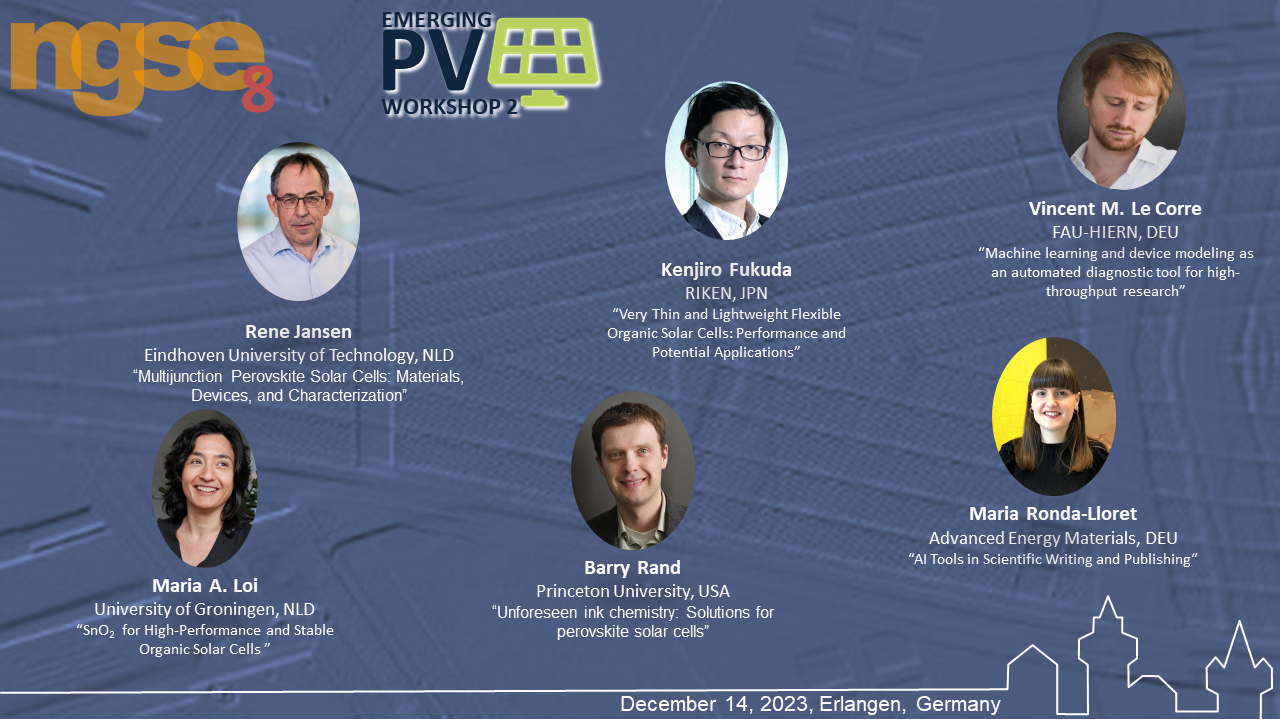
It is our great pleasure to announce the second international Emerging-PV workshop (EPVW2) to be held on December 14, 2022, during the 8th Conference Next Generation Solar Energy (NGSE8), in Erlangen, Germany. The workshop will be held in a hybrid format and a broadcast will take place via Zoom Webinar Free for All after registration for NGSE8.
Following the previous edition (EPVW1), the EPVW2 will not only present the latest progress in the emerging-pv.org website and database and the fourth version of the emerging-PV reports, but also a series of talks on the most recent research progress in the PV field, with a special focus on high-throughput synthesis and artificial intelligence for energy materials in emerging solar cell technologies. The workshop is organized by Osbel Almora and the confirmed list of invited speakers is as follows:
Rene Janssen, Eindhoven University of Technology, The Netherlands
Kenjiro Fukuda, Center for Emergent Matter Science-RIKEN, Japan
Vincent Le Corre, Friedrich-Alexander Universität, Germany
Maria A. Loi, University of Groninger, The Netherlands
Barry P. Rand, Princenton University, United States of America
Maria Ronda-Lloret, Advanced Energy Materials, Germany
International Emerging-PV workshop (EPVW1)
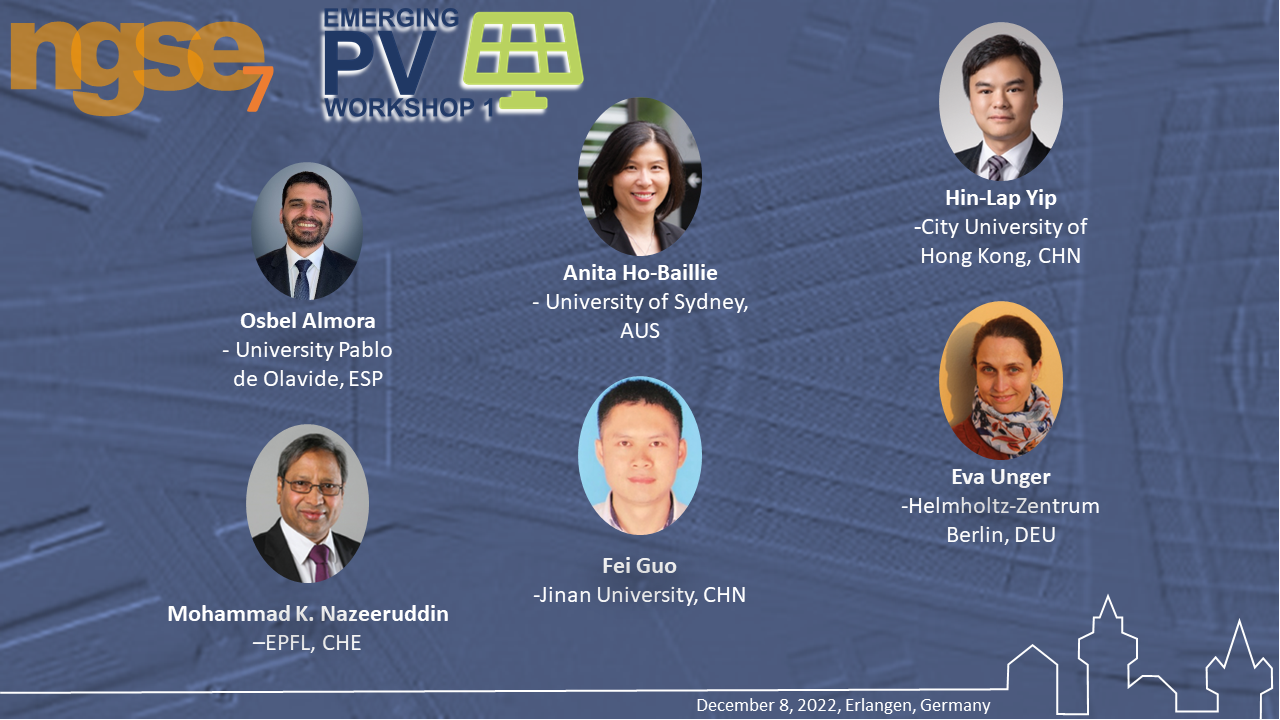
It is our great pleasure to announce the first international Emerging-PV workshop (EPVW1) to be held on December 8, 2022, during the 7th Conference Next Generation Solar Energy (NGSE7), in Erlangen, Germany. The workshop will be held in a hybrid format and a broadcast will take place via Zoom Webinar Free for All after registration for NGSE7.
The EPVW1 will not only present the latest progress in the emerging-pv.org website and database and the third version of the emerging-PV reports, but also a series of talks on the most recent research progress in the PV field, with a special focus on multijunction emerging solar cell technologies. The confirmed list of invited speakers is as follows:
- Anita Ho-Baillie, University of Sydney, Australia
- Hin-Lap Yip, City University of Hong Kong, China
- Mohammad Khaja Nazeeruddin, EPFL, Switzerland
- Fei Guo, Jinan University, China
- Eva Unger, Helmholtz-Zentrum Berlin, Germany
Emerging PV on the EU-PVSEC 2021
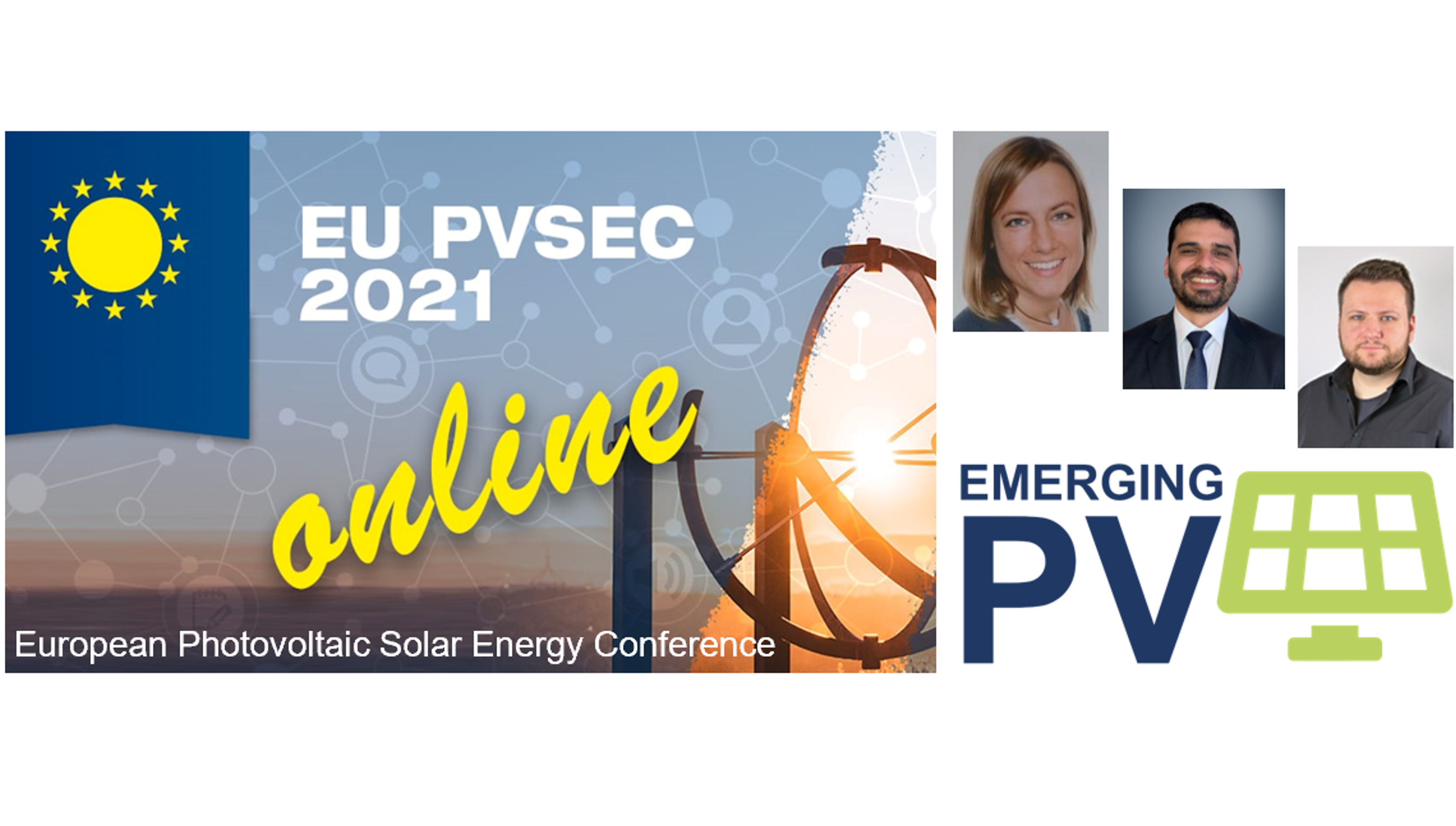
Anna, Osbel and Christian are presenting the Emerging PV reports initiative at the 2021 EU-PVSEC.
Day: Thursday, 09 September 2021 | Time: 15:15 – 16:15 CEST | Site: EU PVSEC Online Platform
Full announcement on the conference page:
https://www.photovoltaic-conference.com/programme/parallel-events/611-parallel-events-emergingpvreport.html
Emerging-PV kickoff on the NGSE5
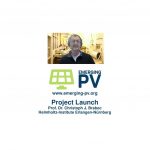
Prof. Dr. Christoph J. Brabec kicks off the Emerging-PV initiative at the NGSE5 conference.
Emerging-PV initiative launched
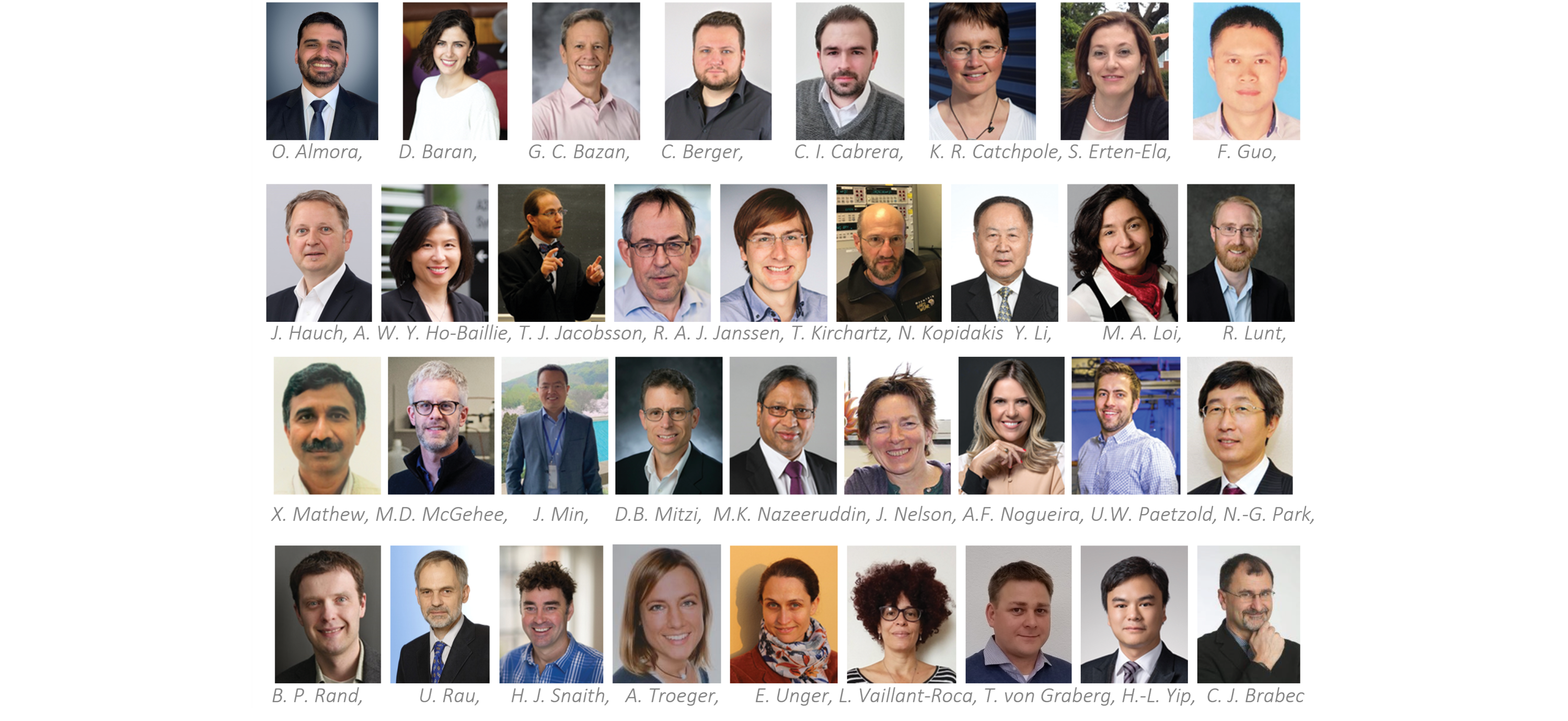
Erlangen, DE – Emerging-PV is an International Consortium Initiative to Summarize and Visualize Research Progress on Emerging PV Technologies
The Emerging PV Reports Initiative (EPVRI) is an academic international framework for collecting, presenting and analyzing data about the best achievements in the research of emerging photovoltaic materials, e.g., organic, perovskite and dye sensitized solar cells, among others.
More than 30 researchers from 15 countries have worked out the fundamental guidelines for reporting progress in emerging PV based on peer reviewed publications. The first version of the Emerging PV Reports is available online and it can be cited as Adv. Energy Mater. 2020, 2002774
In order to guarantee highest data quality, outmost precision and best reliability, a series of criteria will be automatically verified when uploading data. We believe that the accurate reporting of record performance for novel, innovative and emerging semiconductors, independent whether they are demonstrated in flexible, transparent or rigid solar cell architectures, will support to accelerate photovoltaic materials science development. Special emphasis will be placed on reporting operational lifetime efforts – the ultimate discipline of photovoltaics.
Authors are invited to contribute to this database effort and upload their research data based on peer reviewed publications. Submission of research data will be possible under the section My cells, where we provide an interactive form for data contribution and editing. Contributors will gain access to the analysis and visualization tools beyond the public scope. In case of questions, you can reach the authors of this platform under support@emerging-pv.org.
